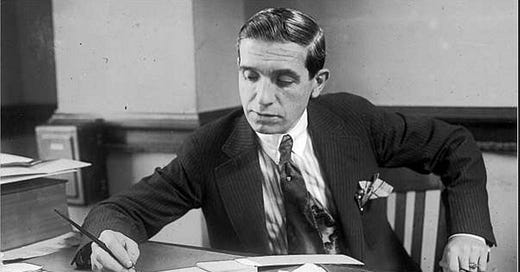The money flowed in, first in drops, then in buckets… At first the money was stuffed into desk drawers in Ponzi’s little Boston office, but then it started coming in at a rate of over $1 million per …
© 2025 Nicholas A. Vardy
Substack is the home for great culture


